Choice of topic:
You may choose a topic from the list at the end of these instructions, or you may formulate
a topic of interest to you – either a modification of a topic on the proposed list, or something that is
a topic of interest to you – either a modification of a topic on the proposed list, or something that is
not on the list but relevant to our course. In all cases, your topic must be defined precisely, it must
be fully relevant to this course, and it must bear on a historical question that is addressed in the
existing academic literature, and for which adequate scholarly resources are available. Note also
that NO Internet sources are allowed (see note below for clarification). Clear your choice of topic
with your TA.
Note: The “No Internet sources” rule does not mean that you cannot access a legitimate primary or
secondary source through the internet. You may well retrieve a journal article, a book, or even a
primary text through the internet – for instance through our library on-line resources. In that case,
your citation must give the journal coordinates, or the original publication coordinates (and not the
web path used to access the journal, the book, etc.). You may not, however, use a reference to a
web site, or to any opinion or information simply posted on a web site, whatever the nature of the
site. The reason is simple: we want you to use peer-assessed secondary sources (or similarly
approved primary sources), rather than the fleeting information found on web sites. If you do find
something interesting on a web site, you must then seek confirmation for that information in a
published, peer-reviewed source (or published original text in the case of a primary text).
Proposal: Type a short proposal (one or two pages), stating:
. The exact formulation of your topic;
. What plan you intend to follow;
. What kind of arguments you envision making;
. Several sources that you believe will be helpful to your research.
Please note that you may well deviate from this plan, change your argument(s), and use other
sources, over the course of your research after having submitted this proposal. You may not,
however, change your topic without approval from your TA.
Do not hesitate to discuss your intentions and the shape of your proposal with your TA,
before submitting the proposal, or when it is given back to you. To do so, make an appointment
with your TA, or come to her / his office hours.
Essay: This essay must be typed, double-spaced, 1-inch margins on all sides, 12-font, and 2500-
3000 words long (include a word-count at the end of your text). Please note that you may submit
a longer essay – we will not stop reading at the 3000th word. 2500-3000 is a guyideline.
footnotes or endnotes, and for the bibliography, you must use the reference system outlined in
details in Rampolla’s Pocket Guide to Writing in History (Chicago Manual of Style).
Be sure to give the appropriate references for all important and original ideas you use, not
just quotations. If you have any doubt about what should be referenced, refer to the discussions
held in tutorial earlier in the year, talk to your TA, and consult Rampolla’s guide. Keep all
preparatory notes and a spare copy of your final draft.
For this essay, you are required to use as sources a minimum of six books and/or articles
focused on the topic – what are known as secondary sources. This minimum number must not
include textbooks, general surveys of the period, or encyclopedia entries. Such sources may
include textbooks, general surveys of the period, or encyclopedia entries. Such sources may
guide your research, but will not count (and Internet sources are simply not allowed at all, as
explained above). While you may cite primary sources, primary sources do not count in
calculating the number of sources used in preparing the essay for the purposes of the minimum of
six sources. In starting your search for sources, you should refer to the suggestions for further
reading prepared by the authors of the Palmer textbook. These can be found at:
http://highered.mheducation.com/sites/0073385549/student_view0/suggestions_for_further_readin
g.html
Then, be sure to avail yourselves of the many resources available at and through our libraries.
Useful links prepared for use in connection with History 1401E can be found at
http://www.lib.uwo.ca/programs/history/history1401e.html
List of Topics
1. What were the central claims made by Montesquieu in his Spirit of the Laws?
2. In what ways were European armies transformed by the French Revolution and the wars that
started in 1792?
3. In what respects did Napoleon’s rule change France?
4. How much of a break with earlier ways of thinking, feeling, and behaving did the Romantic
movement represent?
5. What were the causes and consequences of the revolutionary upheaval in 1848? Discuss with
reference to the German states, including Austria, or France.
6. Why did Benjamin Disraeli become Prime Minister of the United Kingdom, and what did he
accomplish?
7. How did the reforms of Alexander II change Russian society?
8. By what methods did Britain rule India between 1856 and 1914?
9. Explain the effects of emancipation, or partial emancipation, on the Jews of Germany or
Russia. Please focus on the period between 1850 and 1914.
10. How successful were working class organizations, including unions, political parties, and other
institutions, in protecting the rights of workers between the 1870s and 1914? Please focus either
on Britain or Germany.
11. What did the Dreyfus Affair reveal about the tensions in French society at the end of the
nineteenth century?
12. In what respects were European women able to achieve some measure of emancipation
between 1848 and 1914? Please focus on Britain or France.
13. What forces weakened the power of established religions in either Britain or France in the
course of the hundred years between 1815 and 1914?
14. Assess the origins, motives and consequences of Germany’s policy of Weltpolitik, 1897-1914.
15. During the First World War, Western European nations such as France, Germany, and the
United Kingdom had to mobilize all their resources to an unprecedented extent. How did the war
change these societies? You may, if you wish, focus on one of these nations.
16. Why did Stalin undertake the collectivization of Soviet agriculture and then a massive purge of
the Communist Party and the Red Army?
17. Why did communism appear attractive to so many Europeans outside of the Soviet Union in
17. Why did communism appear attractive to so many Europeans outside of the Soviet Union in
the period between 1920 and 1940? You may, if you wish, focus on one or several countries.
18. Why were Mussolini and the Fascist Party able to seize power in Italy in 1922 and then
consolidate their control of the country in the years that followed? Please discuss, not only the
goals and tactics of the Fascist Party, but why the Italian government and society proved vulnerable
to this threat.
19. Why did parliamentarian systems of government for the most part fail to last after 1918 in the
Central and East-European states in which such institution were created? Please focus on either
Poland or Germany.
20. Explain the motives and methods of the conservative resistance to Nazism. Students who
write on this subject must consider the contributions to the conservative resistance of Ludwig
Beck, Carl Goerdeler, Ulrich von Hassell, Helmuth James von Moltke, and Claus von
Stauffenberg.
21. Why was the response of Britain and France to the menace of Nazi Germany not more
vigorous?
22. How did Jewish organizations and individual Jews in Poland or Germany respond to the threat
posed by heightened anti-Semitism in the period between 1920 and 1940? Please consider
economic, social, political, and cultural aspects of Jewish responses to persecution and the threat of
persecution.
23. Explain the extent of and limitations to the phenomenon of collaboration with Nazi occupying
forces in France or the Soviet Union.
24. How can one explain the popularity of the Communist Party in post-war France?
25. What were the most important reasons for the creation of common European economic, legal,
and political institutions between 1951 and 1992?
26. Why did France so adamantly seek to maintain its control of Algeria in the 1950s, and why did
it lose this colonial war?
27. How can one explain the development of public health care and social welfare systems in most
West European states after the Second World War? You may, if you wish, focus on one or several
countries.
28. How and why have patterns of economic inequality changed in Europe in the course of the
twentieth century?
29. What rights did West European women gain in the period between 1945 and the present day,
and how do you explain these changes? You may, if you wish, focus on Britain, France, or
Germany.
30. In what ways did citizens of the countries of the Warsaw Pact – outside the Soviet Union itself –
attempt to resist the domination of the Soviet Union and its satellite governments between 1945
and 1990? You may, if you wish, focus on one country.
31. How can one explain the existence of anti-Semitism in much of Poland after 1945?
32. The Yugoslav dissident Mlovan Djilas accused the countries of the Soviet bloc, and also
Yugoslavia, of creating a “new class” of administrators who controlled all the institutions of
communist societies. To what extent was Djilas’ claim accurate? You may, if you wish, focus on
only one Soviet bloc country.
33. Since 1945 many of the countries of Western Europe have experienced, with varying degrees of
willingness, a large scale immigration both from other European countries and from outside the
borders of Europe. How have European countries responded to this immigration? (Focus in your
essay on the experience of one, two, or at most three European states).
essay on the experience of one, two, or at most three European states).
34. Why did the Soviet bloc countries find it so difficult to satisfy the demand for a range of
consumer goods? You may, if you wish, focus on one country in the Soviet bloc.
35. Why were there several civil wars in the territory of the former Yugoslavia in the period
between 1991 and 1999?
36. How can one explain the greater legal and also social tolerance for the open practice of
homosexuality in many west European countries starting in the 1960s? You may focus on one or
several countries.
37. By what methods did Vladimir Putin become president of Russia, and then maintain himself in
power?



